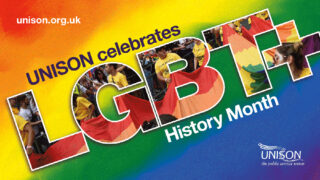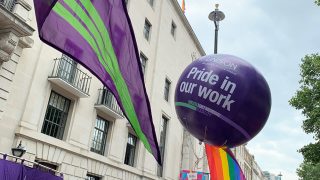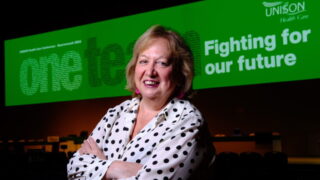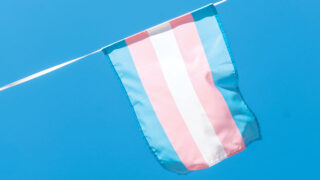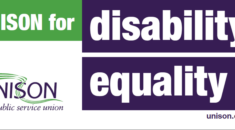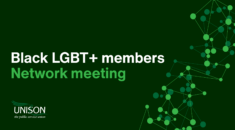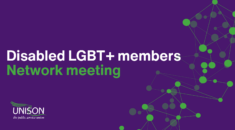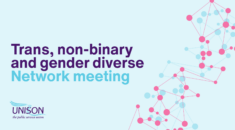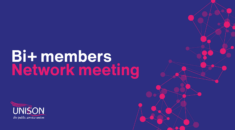A busy day at UNISON’s LGBT+ conference saw delegates discuss a number of major issues.
Mental health was high on the agenda, with Alan Williams for the union’s North West LGBT group saying that there was a “concerningly high rate of suicide attempts by LGBT+ members” and called for more training for reps on the issues.
Hannah Stephenson urged delegates to return to their branches and ask their employers for mental ill health training, while first-time speaker Laura Heaton from the North West talked of how “one person with the right information can make all the difference”.
She said that research suggests that simply calling a young trans person by their chosen name can reduce the risk of suicide by 65%.
Another speaker cited “the constant state of cuts” as making “reaching out for help” increasingly difficult.
Graeme Ellis said that the national disabled members committee feels “very strongly that the onus for training for mental health first aiders should be on employers,” but stressed that the group does support UNISON’s mental health champions scheme.
Delegates discussed the “very visible increase in hate crime in the last few years,” in a motion moved by Rachel Blacklock.
“In my area, we’ve seen a 35% rise in hate crime in the last five years.” Thirty-six per cent of that rise included violence. It was not just a problem facing the LGBT+ community, “but we’re stronger together and can’t just let this happen.”
Talking of having to make choices about where to go where they can be safe, Ms Blacklock revealed that this was not as obvious as one might expect, citing how surveys revealed that 28% of those LGBT+ people affected by hate crime had experienced problems even “in their place of worship”.
Alan Williams said that “never would I have thought that LGBT+ hate crime would have doubled in the last five years.” There were “many, many reasons” for this, but “losing 21,000 police officers” hasn’t helped.
Citing Brexit as having enabled some people to feel that they can “spout their hate-filled, right-wing agenda,” he reminded people of former Conservative Party minister Anne Widdicombe, now a Brexit Party MEP and general election candidate who still believes ‘gays can be cured’. She should “jog on,” he said, to loud applause.

For the national committee, Emma Proctor moved a motion calling for real progress on the gender recognition act. Had there had been a “lack of progress? Definitely! This government shows no interest in advancing the rights” of trans people, she said.
In a moving speech, Jenny Harvey from the West Midlands said that: “You can’t understand how disappointing it is to been.
“The proposed reforms are simple and modest, yet profound.” The intention is to “make gender recognition a less humiliating and less expensive process.
“It has been awful this year,” she added, because those who oppose the reforms, have used the slowness of the process to boost opposition and hostile attitudes that deny the right of Ms Harvey and others to even exist as who they are.
Conference also made a call to “put the politics back in Pride.” Moving the moved, Craig Smart from the Northern region said that the rainbow flag was now seen less as a symbol of resistance and as increasingly as a capitalist commodity. It has been a “privatisation of Pride”.
Delegates saw a brief video message from shadow education secretary Angela Raynor, thanking them for all the work they have done in working for equality for all.
She wasn’t able to attend conference, given the general election campaign, but told them that, “hopefully, after December 12, I’ll be your education secretary and we can ensure that all our children can have an LGBT friendly education”.
During a debate on domestic abuse within the LGBT+ community, Bev Miller highlighted the added difficulties faced by Black LGBT+ people and asylum seekers, while also speaking about how, for instance, a butch lesbian might be less likely to be believed as a victim of abuse than a feminine lesbian.
Conference also heard from a gay man who was abused and beaten by his husband, but that there were no services to support him. He continued to suffer from post-traumatic stress.




